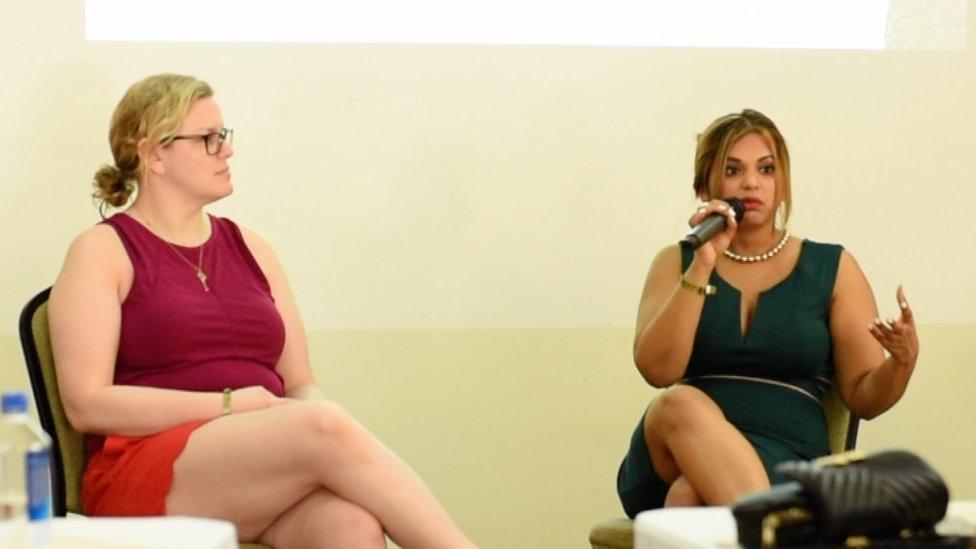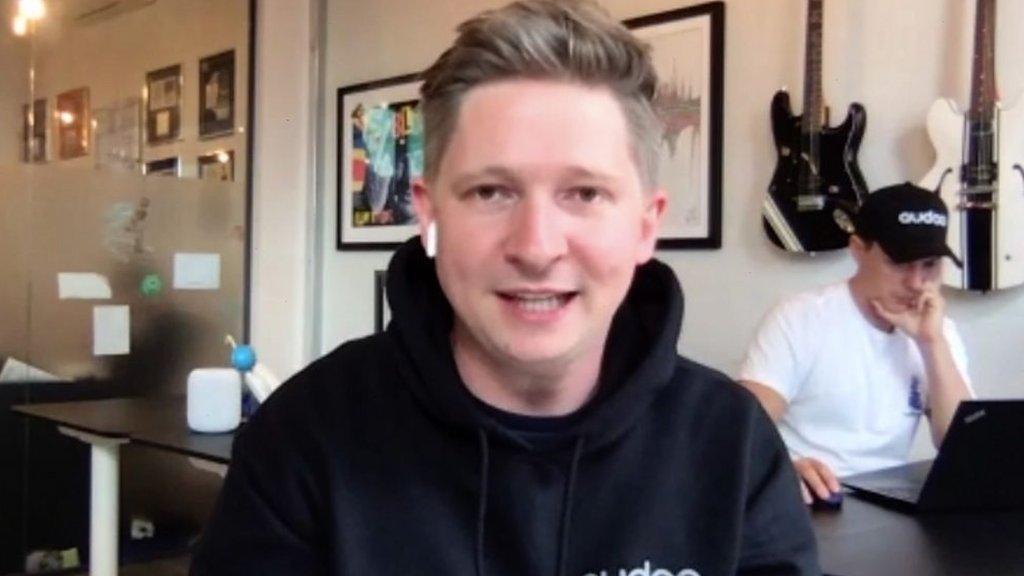Dating coach Sami Wunder reveals dilemma when starting out
- Published
Dating coach Sami Wunder: 'Don't be afraid to charge the full market rate'
Sami Wunder is not your typical chief executive. The business she runs is a love and relationships coaching service.
Today it makes over a million pounds a year. However, when she started out she had to contend with questions that trouble almost every first-time entrepreneur: should I set my prices low at the beginning to attract customers? And if I do, when do I dare raise them?
Sami's answer is that you have to start charging the market rate as soon as you can because, she says, "there's no honour in being the cheapest player."
Born in India and now based in Germany, Sami offers guidance to women with successful careers and high salaries who wish to find someone to marry. She certainly charges them what the market will bear. A day-long session of one-to-one coaching costs the client £13,500.
Sami was inspired to start her business by her own experience. She had a successful career as an economist in Germany but could not hold down relationships with men for more than a few weeks at a time. This led her to examine many of the questions behind why relationships fail and how they can succeed.
She started using a method called "rotational dating", dating a number of men at the same time before making her final choice.
She found her life partner Chris, they got married in 2013, and their son was born in 2016.
That same year she started coaching other women on the nature of attraction and on how to keep high self-esteem in a relationship.

Sami has coached clients around the world
Initially her clients were her immediate circle of friends. However, the fees she charged were minimal - little more than £20 an hour.
"When I started out I had a dilemma about how to price my product, because I hadn't worked with anyone by that point," she says. "So I had no standing in the market."
However, her business grew quickly and soon she was taking so many clients that she was beginning to get exhausted. "I was ignoring myself and my own family," she says.
It was clear she needed to cut down on the number of customers and increase the rates for those who remained. But did she dare do it?
"I was really scared when I raised my prices," says Sami. "It's every entrepreneur's dilemma. When I gradually increase my prices, am I going to get less competitive in the market? I think that's a big lie, because I don't think it's a compliment to be the cheapest player in the market."

Sami recommends "rotational dating", which she practised herself, refusing to be exclusive until she was proposed to
The key to charging more, says Sami, is knowing when it's the right time to do so.
"I decided to start charging full market prices for my services around the fourth or fifth month mark," she says. "Simply because I had served over 20 women by then. So I just knew that the process I was teaching was working and was giving people the transformation it promised."
Since then Sami has steadily increased her rates. Yet despite the rising prices, the turnover of her business has grown every year and now stands at roughly £1.5m a year.
She has coached 2,800 clients in 30 countries around the world, 195 of whom got engaged to be married and hundreds more are in lasting relationships.
"I think it's important for young entrepreneurs to understand that their businesses are not going to be wiped out just because they are charging full market rates," says Sami.
"My business has continued to grow year after year even though I've been increasing my prices. But it all has to come from confidence that you are delivering what you promised to deliver."
Read more CEO Secrets here.
- Published18 November 2020

- Published4 November 2020
